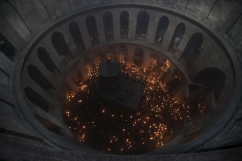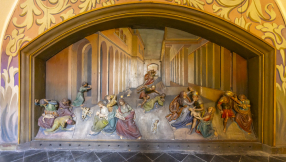A proposal to unify the date of Easter for all Christian churches is currently being studied.
The new date would still be a movable feast as Easter is now, as it would always fall on a Sunday, but the plan is to make it the same Sunday each year. This would be the third Sunday in April.
Currently, in addition to the festival marking the Resurrection of Christ moving to a different date every year, the Eastern Orthodox and the Western churches nearly always celebrate Easter on separate dates.
Patriarch Tawadros II, Pope of the Coptic Orthodox Church, revealed the plans on a visit this week to the Coptic Cultural Centre in Amsterdam. He said the date of Easter is an "historical problem" that in itself does not have implications of faith and doctrine, Amsterdam, Agenzia Fides reported.
This is why a proposal to unify the Easter date for all Christian Churches "on the third Sunday of April" is being studied, he said.
Pope Tawadros had already urged a unified Easter in a letter sent in May 2014 to Pope Francis.
Bishop Angaelos, General Bishop of the Coptic Orthodox Church in the United Kingdom, told Christian Today that the matter had also been discussed during the recent visit of Archbishop of Canterbury Justin Welby to Egypt.
"In principle it is a good idea at least to show a visible solidarity, but even if it does not happen immediately at least the process shows a fellowship and intention to come closer and bring members of our Churches closer," he said. "It is something that everyone thinks is a very good idea. We are trying to see how we might make it happen. The initial steps are just reaching out and trying to get some agreement on the principle. It is not going to be a simple process but at least if the conversation is happening, it brings us one step closer."
Archbishop Welby's office said he did not comment on private conversations.
The Eastern and Western Easters usually fall on different dates because the churches use different calendars, the Julian and Gregorian.
In all countries with a Christian presence, the Easter problem makes life more difficult for secular government, schools, universities and businesses as spring holidays usually take place around the festival.
A 1997 consultation by the World Council of Churches looked at moving towards a common date for Easter. The Orthodox Theological Society in America adopted a resolution in 2001 endorsing the WCC proposal for a common date on the basis that it accounted for the vernal equinox, for the full moon on the same basis and for the Nicene Fathers' recommendations concerning the Jewish Passover.














